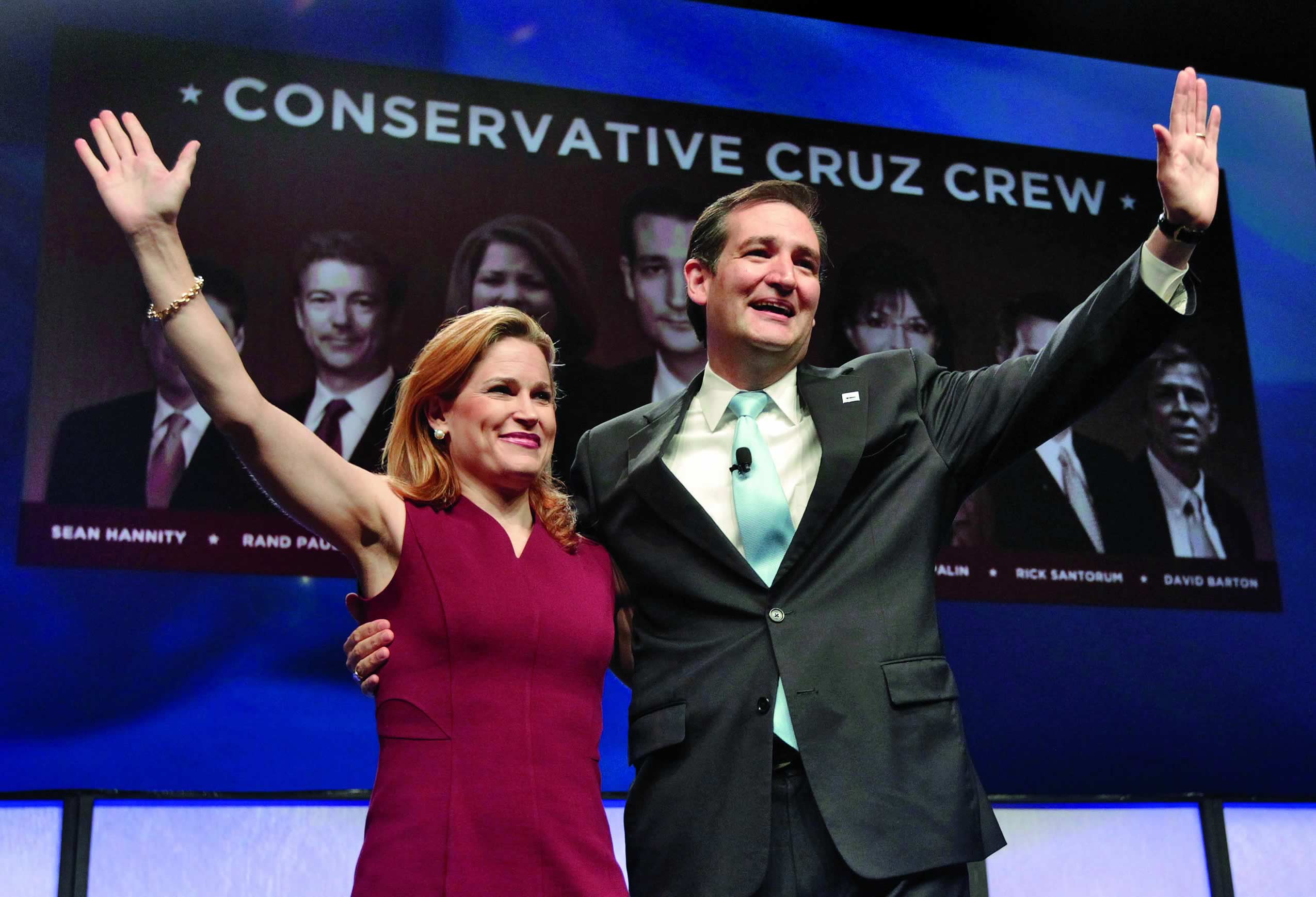U.S. Senate candidate Ted Cruz calls for a “return to the framers’ vision of a constitutionally limited government”
When he announced his candidacy for the U.S. Senate in January 2011, Ted Cruz ’95 recalls, only 2 percent of respondents supported him in a Texas poll that had a 3 percentage-point margin of error.
Eighteen months later, Cruz upset GOP establishment candidate Lt. Gov. David Dewhurst in a runoff primary election on July 31, and he will oppose Democrat Paul Sadler in November. In late August, as he prepared to fly to the Republican National Convention, Cruz reflected on his political journey, and his emergence as a national leader in the conservative Tea Party movement’s bid to shrink the size and power of the federal government.
“We are seeing a great awakening, all across the country, because career politicians have spent us to the verge of bankruptcy,” said Cruz, 41, who leads the U.S. Supreme Court and appellate litigation practice at Morgan, Lewis & Bockius in Houston. “Millions of Americans are saying, ‘Enough already.’ It’s a message that resonated powerfully in Texas among the Tea Party, Republican women and grassroots activists.”
A founding general editor of the Harvard Latino Law Review, Cruz clerked for U.S. Supreme Court Chief Justice William Rehnquist. He served as director of the Federal Trade Commission’s Office of Policy Planning and associate deputy attorney general in the U.S. Department of Justice before becoming Texas’ first Hispanic solicitor general in 2003.
Cruz has carried the conservative banner, seeking to restrict abortion rights, bolster the rights of gun owners, resist what conservatives see as encroachments on religious freedom and defeat gay marriage.
At Harvard Law School, Cruz was a research assistant for Professor David Shapiro ’57, who was writing a book on federalism (the topic of Cruz’s undergraduate thesis at Princeton). In 2007, when Cruz returned to HLS for a moot court exercise to prepare for an upcoming argument in the U.S. Supreme Court, Shapiro was on the panel.
“We gave him a hard time, and he did very well,” said Shapiro. “I remember him as a personable, bright guy. I knew he was more to the right than I am, and he has moved further to right since then.”
Cruz often tells the story of his father’s immigration to the United States as a way to put flesh on his vision for a reduced role for the federal government. His father was 18 in 1957 when he left Cuba with $100 sewn into his underwear.
“He had nothing, didn’t speak a word of English,” said Cruz. “Thank God some well-meaning politician didn’t come and say, ‘Let me take care of you; let me give you a government check and make you dependent on the federal government, and while I’m at it, don’t bother to learn English.’ That would have been the most destructive thing. Instead, he worked seven days a week, washing dishes, to put himself through the University of Texas, and eventually start a small business.”

Cruz is former Texas solicitor general and his state’s GOP Senate hopeful.
While Texas voters have recently come to know Cruz, his prominence in national legal circles has been growing for several years. He has delivered nine oral arguments before the U.S. Supreme Court, winning several of those cases, which included preserving the words “under God” in the Pledge of Allegiance; allowing a statue commemorating the Ten Commandments to stand at the Texas Capitol; and rejecting International Court of Justice jurisdiction in the case of a Mexican on death row in Texas.
In the latter case, Medellin v. Texas, the inmate argued that his conviction and sentence were procedurally flawed because he had been denied the assistance of the Mexican consulate—assistance which is guaranteed under the Vienna Convention.
“This case raised foundational structural issues concerning the Constitution—in particular, the separation of powers, and restraints on unchecked executive authority,” Cruz said. President George W. Bush had issued a memorandum, telling state courts to comply with a related World Court ruling. “The question was whether the president of the United States could order a state court to obey the World Court. The Supreme Court agreed with Texas.”
Cruz’s brief in the Pledge of Allegiance case found support from attorneys general in all 50 states, while his amicus brief defending the federal partial-birth abortion ban represented 13 states.
He now wants to become a member of the conservative wing of the Senate Republicans. He has made repeal of President Obama’s federal health care reform one of his top priorities.
He sees Obamacare as a prime example of federal government intrusion into the lives of Americans and the institutions that serve them, noting the law’s attempt to order Catholic charities and hospitals to violate their religious tenets and pay for employee contraception. Cruz, who has served as a senior fellow at the Texas Public Policy Foundation’s Center for Tenth Amendment Studies, has proposed that states create interstate health care compacts, which could pre-empt the federal program, if authorized by Congress.
“We need to return to the framers’ vision of a constitutionally limited federal government,” he said. “Unchecked government power always threatens liberty.”
See a list of other HLS alumni running for office in November.
